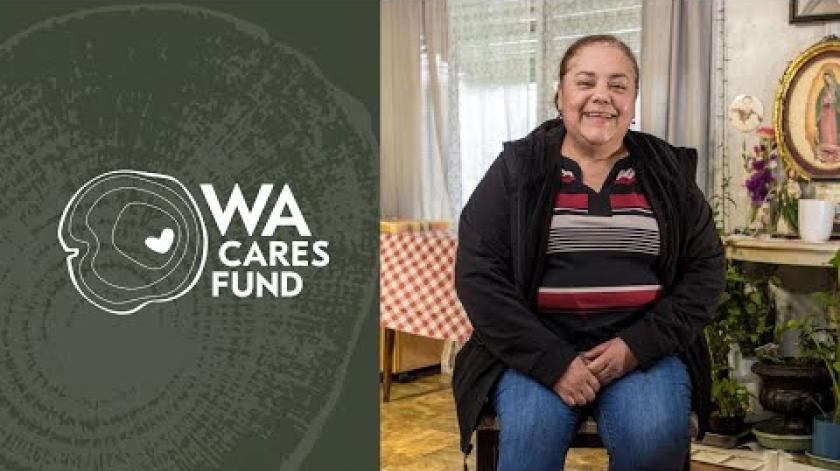Maria lives in Pierce County along with her sister, brothers, and parents. She works part-time as a Spanish-language interpreter, including recent roles at local schools and an organization supporting community health workers. Maria keeps her work part-time to be available to provide care to her aging mom Maria and dad Ismael. She says, “I want my parents to know that I’m here for them if they need help."
Maria’s family immigrated to Washington from Michoacán, Mexico, and her parents worked here prior to their recent retirements. They still live in their own home and are independent except for the support they receive from Maria and her sister, who help with things like taking them to medical appointments to translate and advocate on their behalf.
Several days each week, Maria and her sister stop by her parents’ home to help with household tasks like cleaning and gardening. They accompany their parents on nightly walks to stay active as a family. Maria says she’s grateful her parents are healthy now, but her dad has started to use a cane, and they recently installed a ramp to make it easier for him to get around her parents’ house.
Maria recognizes that many Washington families can’t afford to make the same decision she made to work only part-time. She says, “People may have no one to take care of their parents or grandparents. With a program like WA Cares, people can work and know that their parents are being cared for.”
Maria knows that her parents will eventually need more help than she and her sister currently provide and that long-term care is often expensive. Like many people their age, Maria’s parents are on a fixed income and don’t yet know how they’ll pay for care. Maria says if a program like WA Cares had been available to her parents, it would improve not only her parents’ lives and financial futures, but hers and her sister’s too. Maria believes resources like WA Cares are invaluable. She says, “WA Cares is going to help people.”
Back to all care stories